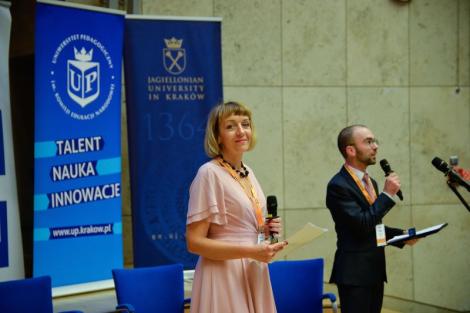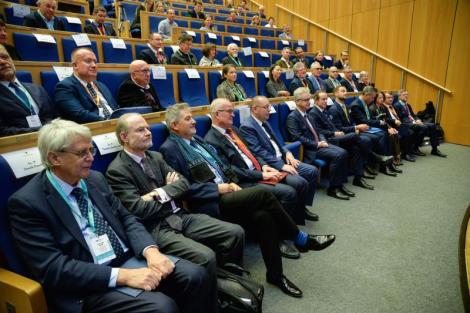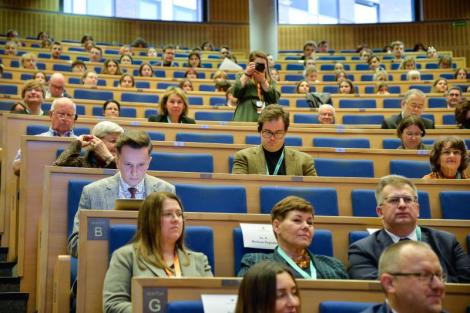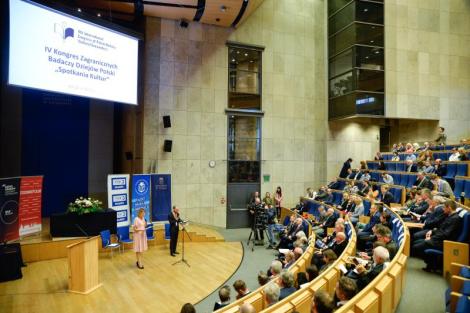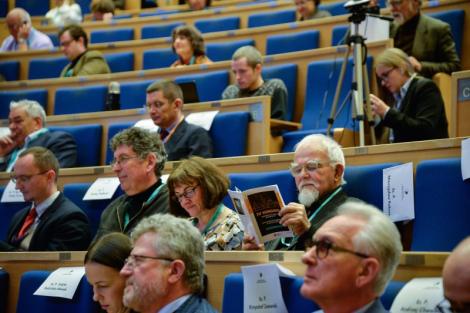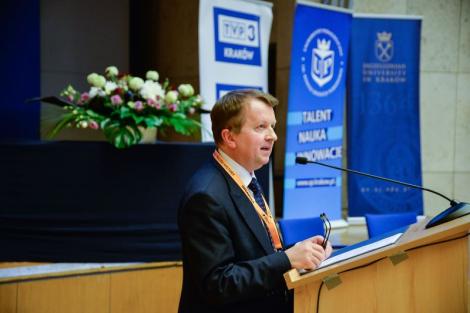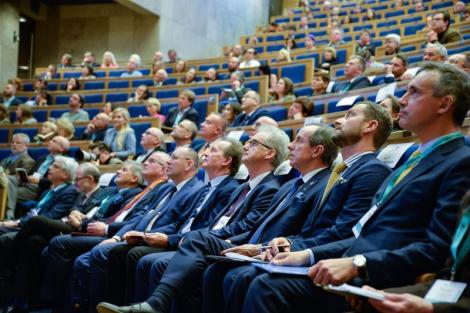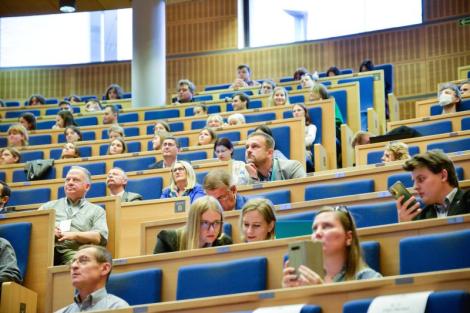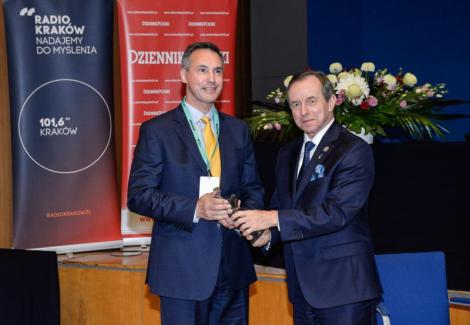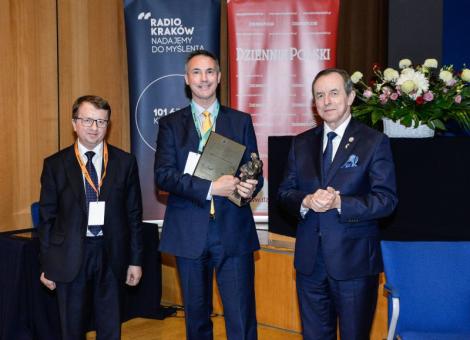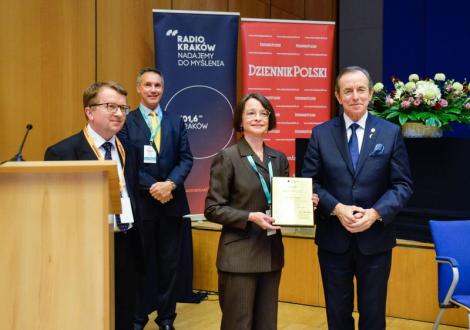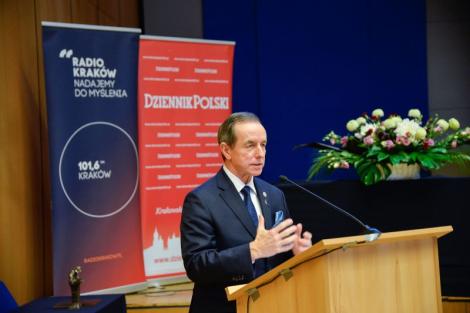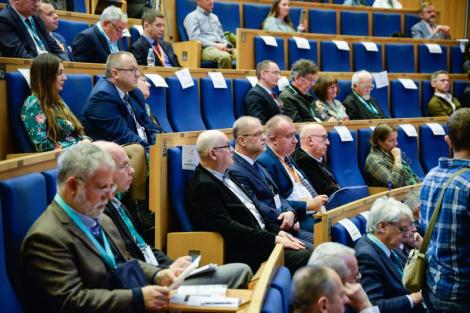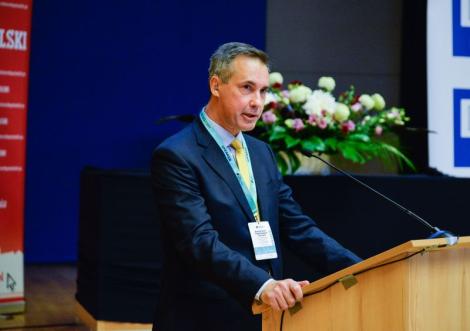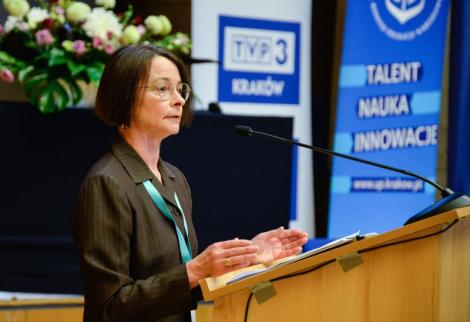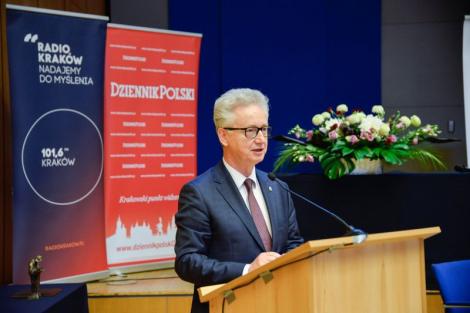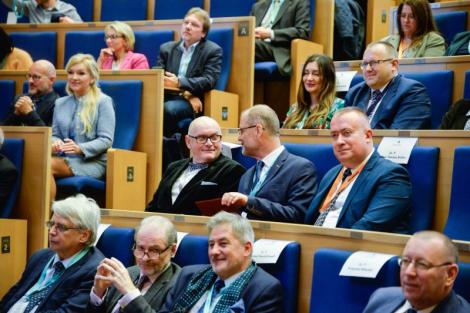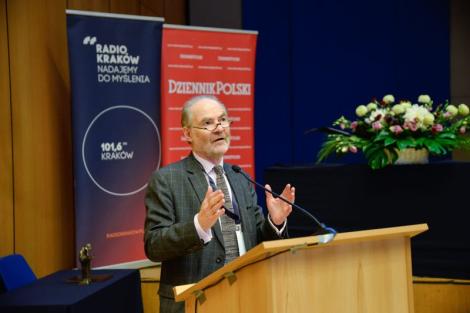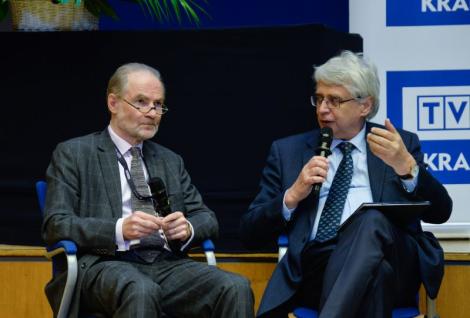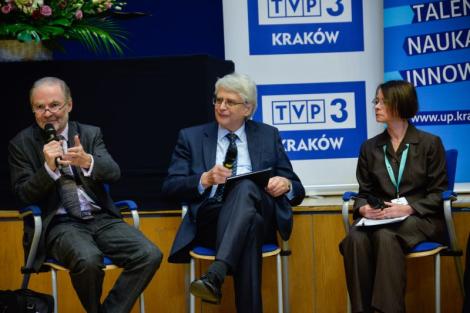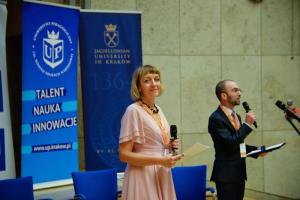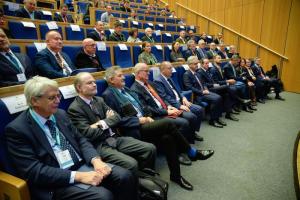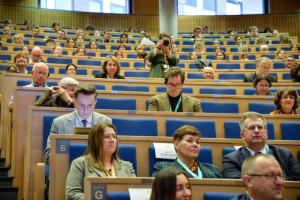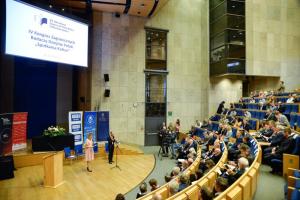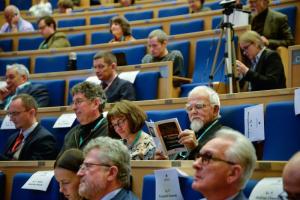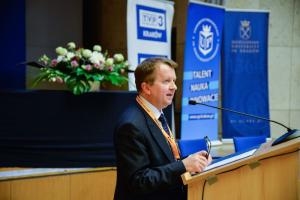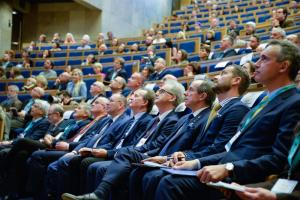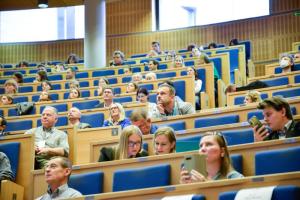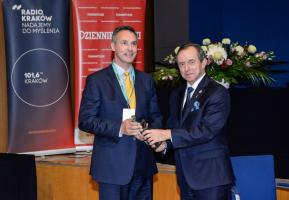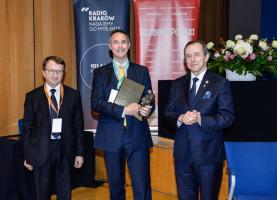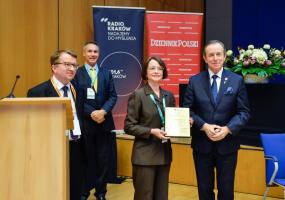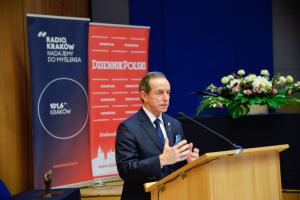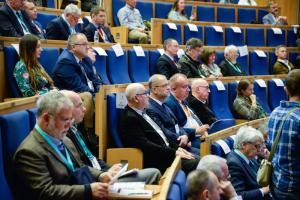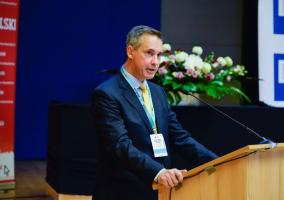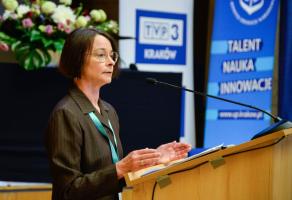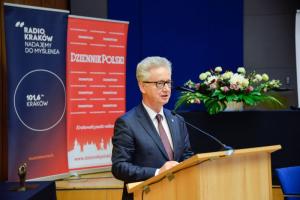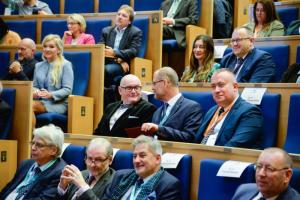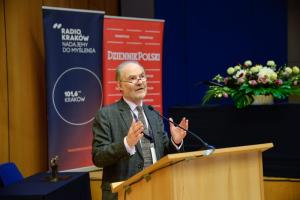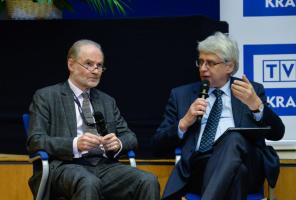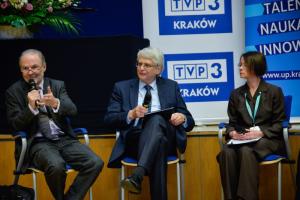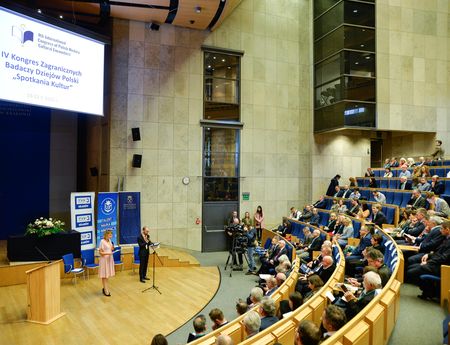
‘Meetings of cultures’ is the theme of the fourth edition of the Congress of International Researchers of Polish History, held in Kraków between 19 and 22 October 2022. During the opening ceremony in JU Auditorium Maximum, the organisers also announced the recipient of this year’s Pro Historia Polonorum award for the best book on Polish history published in the last 5 years.
‘I want to thank professors Andrzej Chwalba and Krzysztof Zamorski for coming up with the idea for a meeting of researchers who study the history of Poland once in every few years. These researchers play an important role, since they have a different perspective on our history and international relations. As someone who specialises in the humanities I’d like to stress that the Congress of International Researchers of Polish History as well as the World Congress of Polish Studies are two events that show that research on Polish history and culture is carried out in major scientific institutions around the world’, said JU Rector Prof. Jacek Popiel.
During the opening ceremony of the Congress, the Pro Historia Polonorum award was presented to the author of the best historical book on Poland or Polish related subject, published in the last 5 years by a foreign publishing house. The award was first conceived by the Kraków branch of the Polish Historical Society and is funded by Polish Senate member Prof. Tomasz Grodzki. In previous editions, the award was given to professors Timothy Snyder, Antony Polonsky and Robert Frost.
‘The award committee considered 88 books in total. 41 of them were written in English, 20 in German, 6 in Russian, 5 in Ukrainian, 4 in French and 3 in Czech. There were also publications in Bulgarian, Italian, Croatian, Romanian and Lithuanian. Over the course of several meetings, this number was narrowed down to 10’, said Prof. Stanisław Sroka, Dean of JU Faculty of History and head of the committee.
This year’s award was presented to Richard Butterwick-Pawlikowski, author of The Polish-Lithuanian Commonwealth, 1733–1795. Light and Flame. The British researcher ‘tells the compelling story of the last decades of one of Europe’s largest and least understood polities: the Polish-Lithuanian Commonwealth. Drawing on the latest research, Butterwick vividly portrays the turbulence the Commonwealth experienced. Far from seeing it as a failed state, he shows the ways in which it overcame the stranglehold of Russia and briefly regained its sovereignty, the crowning success of which took place on 3 May 1791—the passing of the first Constitution of modern Europe’ – reads the description provided by Yale Books.
‘It’s difficult to express my gratitude for this decision. I’m especially happy to receive this award at the Jagiellonian University, where I spent the memorable academic year 1989/1990. I treat this award as a sign of support for historians specialising in the history of the Republic of Poland. It is of utmost importance to present to the readers the full potential and trajectory of the reforming Poland and its struggle during the partitions and later. It’s important even to the Poles themselves, many of whom are eager to look for scapegoats for the tragedy of partitions amongst their own countrymen. Some of them blame the anarchist gentry, others – the traitorous king. Central Eastern Europe is still not able to move past the partitions’, said Prof. Richard Butterwick-Pawlikowski.
‘Until World War II, Poland was not homogenous when it comes to the nationality of its citizens. Despite differences in language, faith and culture, the inhabitants of the Republic of Poland found their place and felt the need to belong to a community. In my hometown of Szczecin, we learned that we not only can, but have to work together, with mutual respect, to uphold our traditions and live peacefully, bringing prosperity to the Western Lands’, said Prof. Tomasz Grodzki. ‘An outside perspective, characterised by balance and lack of personal biases, is always very valuable. Thanks to the work of foreign historians, we can better understand the role of Poland in the contemporary world’, he added.
The opening lecture was delivered by British historian specialising in post-War Europe Timothy Garton Ash, who talked about the historical changes that happened to Europe after World War II, the end of the Cold War and its apparent return in the last few months.
The Congress of International Researchers of Polish History is organised every 5 years. It is directed to historians, archaeologists, linguists, and cultural researchers. The event has a very broad scope and will also feature sessions for PhD candidates as well as a poster session. It is accompanied by many events that promote Kraków as an academic city.
Aside from the Polish Historical Society, the Congress is organised by the Jagiellonian University, Pedagogical University of Cracow, Polish History Museum, Museum of Kraków and the International Cultural Centre.


